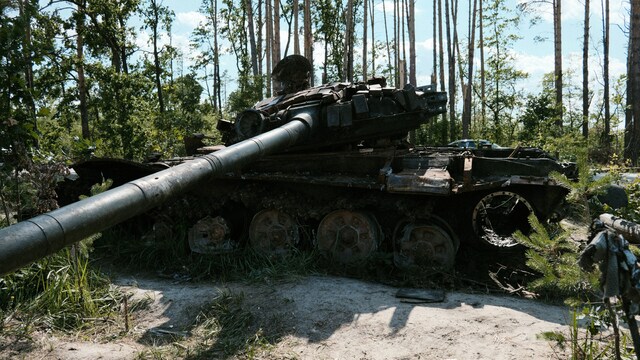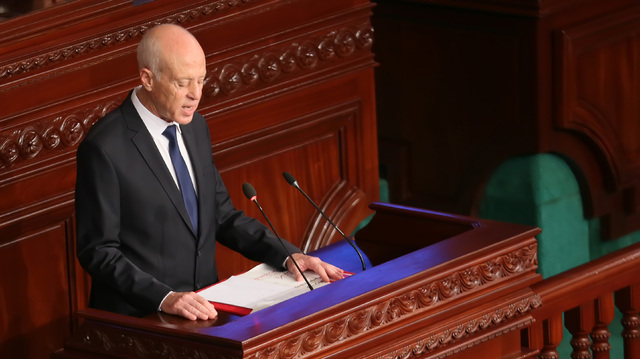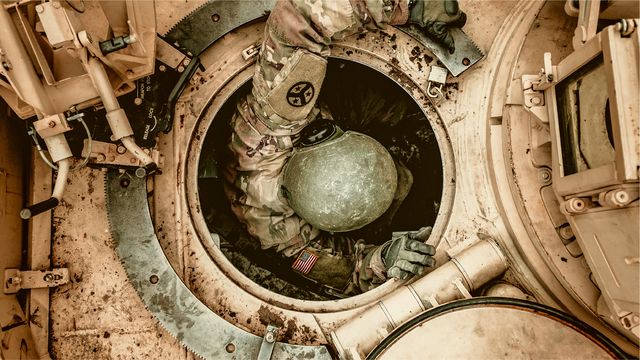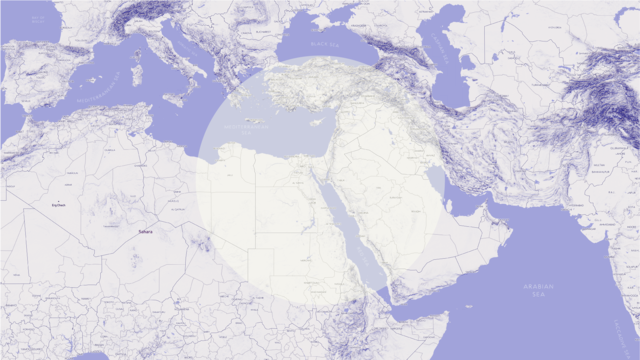The Use of Force Against the Islamic State
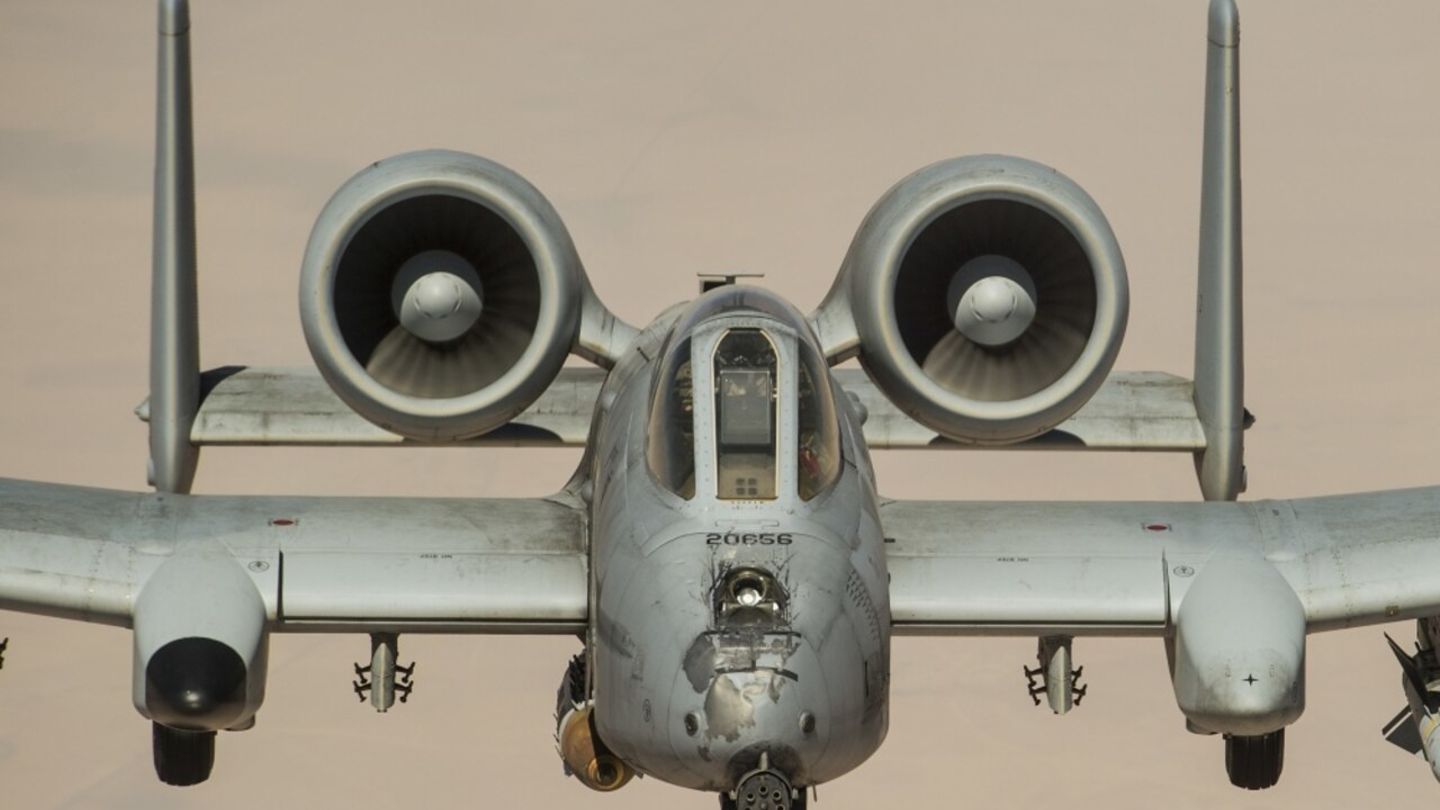
paper
The Islamic State (IS) must not be recognized as a State. It is an illegitimate non-state actor engaged in serious violations of international law. The use of force against the IS does not have a uniform legal basis. Some of the related actions can be justified on the grounds of the consent of the territorial State (this is the case with the US in Iraq, and Russia in Syria). The legality of other actions against the IS (those of Turkey in Iraq, and of the US in Syria) remains doubtful. The IS is likely to be defeated in the upcoming months. The situation does not require a more active engagement by the Czech Republic beyond what it is already doing (provision of weapons, training of armed and police personnel, etc.).
INTRODUCTION
The emergence of the so-called Islamic State (IS) has given rise to various legal questions. This policy paper considers some of them. It discusses: 1) whether the IS is a State, and if not, what its legal nature is; 2) whether the use of force against the IS by countries other than Syria and Iraq is lawful under international law (jus ad bellum); 3) what the nature of the armed conflict(s) in which the IS is involved is, which rules apply to it (them) and what the status of the IS fighters is (jus in bello); 4) which crimes the IS has committed, and what the options for criminally prosecuting IS members for these crimes are.
THE LEGAL NATURE OF THE ISLAMIC STATE
The Islamic State, as its title indicates, considers itself a “State”. In a State-centric system of international relations, such a qualification would grant it a privileged position and endow it with rights and duties that non-state actors do not possess. Yet, the IS is not entitled to this position, because it is not a State.
The criteria of statehood were codified in the 1933 Montevideo Convention on the Rights and Duties of States. They are the following: a) a permanent population; b) a defined territory; c) effective government; and d) capacity to enter into relations with the other states. All these criteria have to be met cumulatively. Moreover, over the years, two additional criteria have been proposed by scholars and have been gaining increasing support at the international level. Those additional criteria are: e) independence, and f) legitimacy.
The IS fails to meet, in total or in part, at least three of the criteria, namely (effective) government, capacity to enter into international relations, and legitimacy. Since its rise to power in Syria and Iraq, the IS has exercised governmental authority. Yet, this authority has been in place for too short a period to prove its effectiveness. The IS has shown no willingness to enter into international relations with other States. Rather, it has indicated its wish to destroy these States and replace them with a universal caliphate. That also explains why the IS has not secured a single recognition from other States. The IS also clearly lacks legitimacy. Its establishment took place in total disrespect of the wishes of the local inhabitants of the territories it took over, and it has been involved in massive, systematic and serious violations of the most fundamental human rights (the right to life, the prohibition of torture, etc.). The IS is not a State. It is an illegitimate non-state actor. It qualifies as a terrorist organization under the UN Security Council resolutions on the fight against terrorism (see Resolutions 2170 [2014] and 2253 [2015]). Under the law of armed conflicts, it also qualifies as a non-state party to the conflict (also called an armed opposition group) in the sense of Common Article 3 of the four 1949 Geneva Conventions and the 1977 Additional Protocol II to the Geneva Conventions.
THE MILITARY INTERVENTION AGAINST THE ISLAMIC STATE (JUS AD BELLUM)
From August 2014 up to November 2016, two international coalitions have intervened against the IS: the US-led coalition known as the Combined Joint Task Force – Operation Inherent Resolve (CJTF–OIR) and the Russia-led coalition. The two coalitions have used force in the territory of both Iraq and Syria. The Czech Republic has not been involved in the military interventions, but it has contributed to the fight against the IS indirectly, providing weapons and ammunition to Iraq and training the Iraqi armed and police forces. It has also indicated its willingness to take over some of the obligations of its allies outside the Middle East region to free their hands to fight the IS (for instance, the obligations in Mali). Current international law does not foresee specific legal rules that would regulate the use of force against non-state actors. Military interventions against such entities may nonetheless be lawful if States undertake them with the consent of the territorial State, with a mandate of the UN Security Council or in individual or collective self-defence. Although other titles for military intervention (humanitarian intervention, democratic intervention) have occasionally been discussed by States and scholars, only three titles – UN-authorised intervention, intervention by invitation, and self-defence – are generally accepted as lawful exceptions to the prohibition of the use of force enshrined in Article 2(4) of the UN Charter. The UN Security Council has adopted a series of resolutions relating to the situations in Syria and Iraq. Some of these resolutions have been adopted under Chapter VII of the UN Charter and have imposed targeted sanctions upon the IS and its leaders. Yet, no resolution has authorised the use of military force against the IS. The Council got close to it in its Resolution 2249 (2015), which condemns crimes committed by the IS and calls upon States to “take all necessary measures, in compliance with international law […] on the territory under the control of ISIL […] in Syria and Iraq” (par. 5). The resolution, however, was not adopted under Chapter VII and, as such, it cannot provide a legal basis for the use of force against the IS. The armed interventions by the US-led coalition in Iraq and by the Russia-led coalition in Iraq and Syria have taken place with the consent of the territorial States. Iraq requested military assistance in early 2014 (the request was addressed to the international community), and Syria in mid-2015 (the request was addressed to the Russia-led coalition). Although some doubts have been expressed by scholars as to the right of the Assad government to issue a valid request for intervention (due to the crimes committed by this government and the state of civil war in the country), the international community seems to have accepted this right. The Iraqi request has also been invoked by Turkey. Yet, the Turkish incursions into the Iraqi territory (targeting Kurdish forces) have repeatedly exceeded the scope of the request.
The use of force by the US-led coalition in Syria has been justified by individual or collective self-defence. The reliance on individual self-defence is not persuasive in this case. Even if one accepts that acts of non-state actors can amount to an armed attack, most of the members of the CJTF–OIR coalition can hardly claim to have become victims of an armed attack by the IS. The reliance on collective self-defence is based on an innovative reading of international law in which a State attacked by a non-state actor can retaliate with the use of force not only when the attacks against it can be directly attributed to another State (which is not the case with the IS), but also when the territorial State is unwilling or unable to suppress a non-state actor that attacks it (which may arguably be the case with the IS). This reading, however, is not uniformly accepted, and thus, the legality of the use of force by the US-led coalition in Syria remains doubtful.
LEGAL QUESTIONS IN THE CASE OF A MILITARY INTERVENTION (JUS IN BELLO)
The IS does not qualify for the status of a sovereign state. Clashes between the IS and armed forces of the states on whose territory it is active, amount to an armed conflict of a non-international character under international humanitarian law (IHL). If the IS uses the territory it controls within one state for supporting its combat activities in another one, the armed forces of the latter state have to respect rules governing international conflicts if there is no consent from the territorial state. But at the same time, it does not change the status of the IS or its fighters. In the case of a foreign military involvement, the applicable law depends on its legal base. If there is no consent from the state the territory of which is affected by the intervention, the situation becomes an international armed conflict (hence, the four Geneva Conventions of 1949, Additional Protocol I of 1977, other treaties, and customary IHL rules apply to both the intervening states and the territorial state, if it decides to defend itself against the intervention). If the state agrees to having foreign armed forces operating on its territory, the intervening state acts on behalf of the territorial state, and the conflict upholds its internal character, meaning the applicability of rules governing internal conflicts (Common Article 3 of the Geneva Conventions, Additional Protocol II of 1977, other treaties, and customary IHL rules). Additionally, norms of international human rights law are applicable in such cases. European states have to respect the European Convention on Human Rights, and they are subject to the jurisdiction of the European Court of Human Rights in Strasbourg. States are responsible for making sure that their domestic legal systems are in conformity with their international legal obligations. This is especially important, as activities of states’ armed forces are directly governed by the provisions of the respective domestic law.
In case of a foreign military intervention against the IS, regardless of the qualification of the conflict, the situation most probably will evolve into an “asymmetric conflict”, which is a category of military science and the art of war. It refers to situations where the imbalance between opposing armed forces (e.g. a state’s regular armed forces and paramilitary organisations on the other side) leads to the application of cunning and novel tactics, which unfortunately often lead to violations of rules of conduct of warfare. These rules have been developed by state practice and codified in international treaties, reflecting the paradigms of classic symmetric conflicts. International law does not have any set of rules specifically targeted to be applicable in asymmetric conflicts, as all legal norms of the law of war are binding regardless of relative power differences between the adversaries. Any military intervention against the IS would result in the terrorist organisation employing the same methods, so here it is useful to take some of the most important elements of the laws of warfare and evaluate them in an asymmetric conflict situation. Protection of civilians, which is one of the most important goals of IHL, becomes very difficult in asymmetric conflicts, especially with vulnerable groups, as such groups are often abused the most by IS, so the intervening states’ armed forces have to be especially careful regarding their conduct related to them. In asymmetric conflicts, fighters often disguise themselves as civilians, or civilians can be used for shielding legitimate military targets from attacks, making the application of the principle of distinction very difficult for the military forces of the intervening states. They also have to be very careful with collateral (or incidental) damage, which means attacks targeted at legitimate military objectives that cause civilian casualties or damage to civilian objects. It is accepted by IHL as being lawful to a certain extent, but at the same time, it means a giant political risk, especially with modern media.
The situation of IS fighters is an exceptionally complex question. An evaluation of this question is necessary for us to be able to determine the rules of their treatment and possible legal actions against them, depending on their status and activity. Violation of such rules is especially problematic for European states, as their possible human rights violations are under the constant scrutiny of the European Court of Human Rights. In armed conflicts, applicable laws permit the capture and confinement of individuals for various reasons - for example, for taking an active part in the hostilities or for performing of hostile activities which may pose a security risk. While provisions of international law do not impose absolute limitations on states in armed conflicts, they also provide for protection of individuals to prevent abuse of power by states. These protective norms have to be respected by states participating in any military operation against the IS.
The status of detained IS fighters depends on the type of conflict and the reason for the captivity. IS fighters detained in non-international armed conflicts are subject to the jurisdiction of the state on the territory of which the hostilities take place, the legal categories of combatants and prisoners of war are not applicable in such cases, and the fighters do not have prisoner of war status. The actions of such individuals constitute a common crime punishable under domestic law. IS fighters detained in international armed conflicts may fall into the category of combatants, who are entitled to prisoner of war (POW) status, or the category of civilians, and protective rules are assigned to both statuses under IHL and have to be respected by the states. Most IS fighters would fall into the second category, which provides for a legal possibility of determining their criminal responsibility.
THE POSSIBILITY OF CRIMINAL PROCEEDINGS IN THE INTERNATIONAL CRIMINAL COURT
The IS and its members are responsible for a wide array of international crimes which belong to the jurisdiction of the International Criminal Court, which was created in 1998 by the Rome Statute, and operated since 2002. A report compiled by the United Nations High Commissioner for Human Rights in 2015 has reaffirmed the horrific news of the IS’s crimes, and there is a growing demand from NGOs and governments to use the Court against it.
According to the report, the IS is responsible for war crimes, crimes against humanity and possibly genocide as well, crimes over which the International Criminal Court has material jurisdiction. But for the Court to be able to conduct investigations in a given geographical/political situation and initiate individual criminal cases, an additional precondition has to be met. The situation has to be referred to the Court by a state on whose territory the crimes have taken place, regardless of whether it is party to the Rome Statute or not. In the case of crimes committed on the territory of a state party to the Statute, investigations could be started by the Prosecutor of the Court on his/her own initiative. However, as neither Syria nor Iraq is party to the Rome Statute, and there is no sign of a willingness to cooperate with the Court on their part, these options are not realistic in their case. Alternatively, the United Nations Security Council could refer the situation to the Court, but it is highly unlikely because of a strong and dubious Russian engagement in the situation, which would probably lead to a veto of the proposal.
We can conclude that under the current circumstances, it would not be easy to set the International Criminal Court into motion. Seemingly, domestic criminal proceedings are the only possible option in front of the states’ own courts.
Conclusions and recommendations Based on the presented analysis there are four possible recommendations for the Czech Republic:
• For the past few months, the IS has been losing on the battlefield, and there is a chance that it will be defeated rather soon. The situation does not require a more active engagement by the Czech Republic beyond what it is already doing now.
• Yet, entities such as the IS may again emerge in the future. The Czech Republic should thus formulate its legal position with respect to the jus ad bellum and jus in bello issues stemming from their existence and revise its legislation accordingly.
• It should decide under what conditions it considers the use of force against non-state actors lawful (especially whether it accepts the expanded theory of self-defence). It should also clarify its position on the legal status of individuals fighting on behalf of such entities as the IS.
• Moreover, since at the moment, the most probable encounter of the Czech Republic with the IS would be through the judiciary – in criminal prosecutions of foreign fightInstitute of International Relers and people supporting the IS materially or otherwise – the Czech Republic has to consider whether the legal framework applicable to such prosecutions is adequate.
This would include a clarification of the country’s position on the ICC’s role in handling similar situations and the development of a foreign policy strategy to support it.
Veronika Bílková is the Co-ordinator of the Centre for International Law of the Institute of International Relations Prague and a Researcher there. She is also a member of the European Commission for Democracy Through Law (the Venice Commission). E-mail: bilkova@iir.cz
Tamás Lattmann is a Researcher and member of the Centre for International Law at the Institute of International Relations Prague. E-mail: lattmann@iir.cz
This policy paper is based on the results of the project TB940MZV003, which was supported by the Technology Agency of the Czech Republic.

